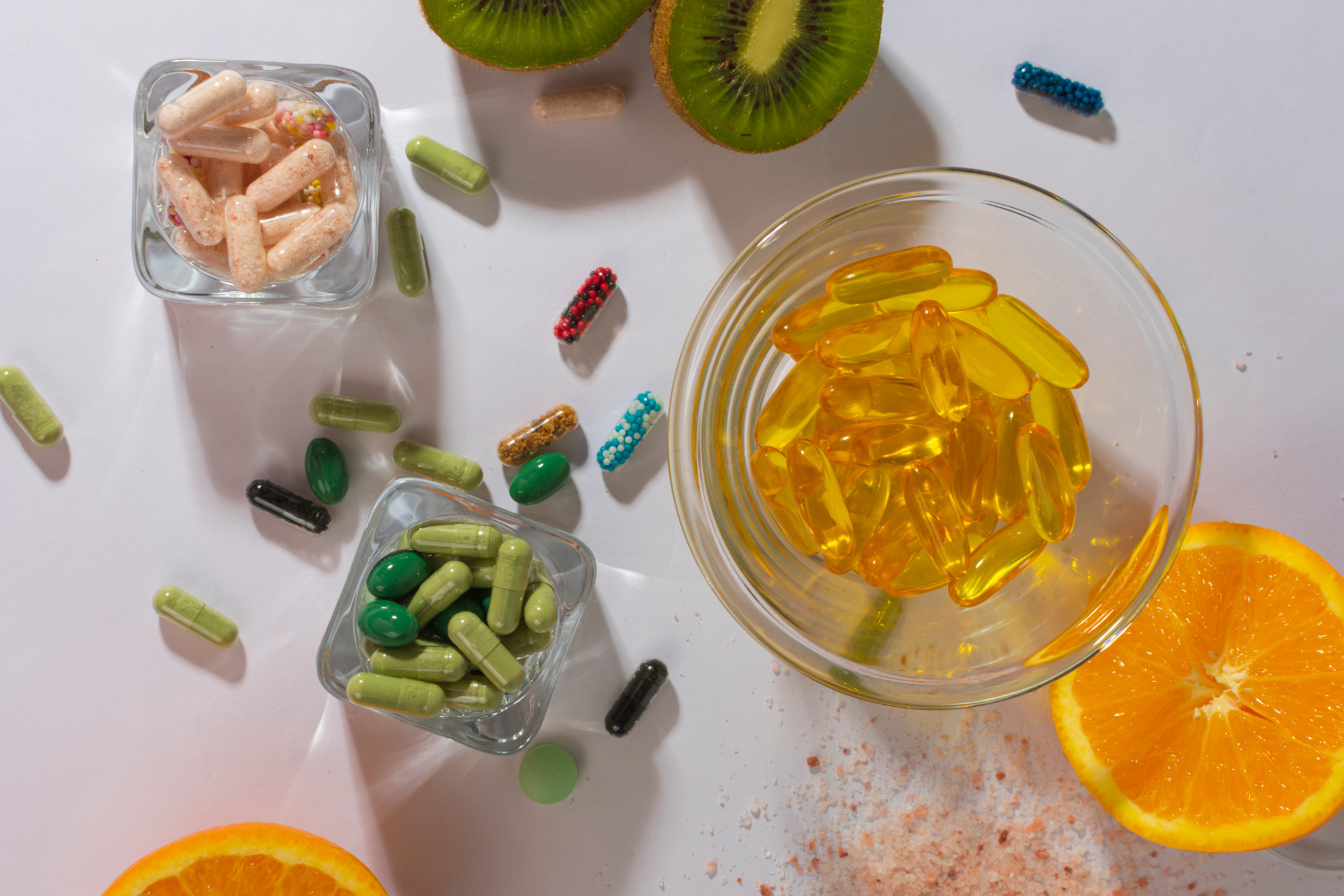Sustainability is becoming a priority in the supplement industry as brands and consumers push for eco-friendly packaging solutions that reduce plastic waste and lower environmental impact. Plastic-free supplements, recyclable materials, and compostable packaging are gaining traction as businesses seek alternatives to traditional supplement packaging.
Companies that adopt sustainable packaging solutions not only meet consumer demand but also improve product integrity, reduce their carbon footprint, and enhance brand reputation. This guide explores sustainable supplement packaging options, including eco-friendly pouches, glass jars, fully recyclable blister packs, and reusable containers, helping brands choose the right materials for production efficiency, cost-effectiveness, and market competitiveness.
Table of Contents
ToggleWhy Sustainable Packaging Matters
Sustainable supplement packaging helps reduce plastic pollution, improve production efficiency, and lower the carbon footprint of dietary supplements. As more companies adopt eco-friendly packaging, the industry shifts toward ethical nutrition and responsible business practices. Using recyclable, reusable, or compostable materials benefits brands and consumers while aligning with sustainability goals.
- Reducing environmental impact and waste – Plastic-free supplements and compostable packaging minimize plastic waste and prevent packaging from ending up in landfills. Eco-friendly pouches and fully recyclable containers help protect the planet.
- Meeting consumer demand for eco-friendly products – Consumers prefer sustainable packaging solutions, which influence purchasing decisions and brand loyalty. Glass jars, reusable bottles, and eco-friendly pouches appeal to health-conscious buyers.
- Compliance with sustainability regulations and certifications – Many regions require businesses to follow guidelines for reducing plastic waste. Packaging made from sustainable materials, such as plant-based or fully recyclable options, helps brands meet these standards.
- Enhancing brand reputation and customer loyalty – Companies that prioritize sustainability stand out in the supplement industry. Using eco-friendly packaging and highlighting sustainability efforts in marketing build trust and attract customers.
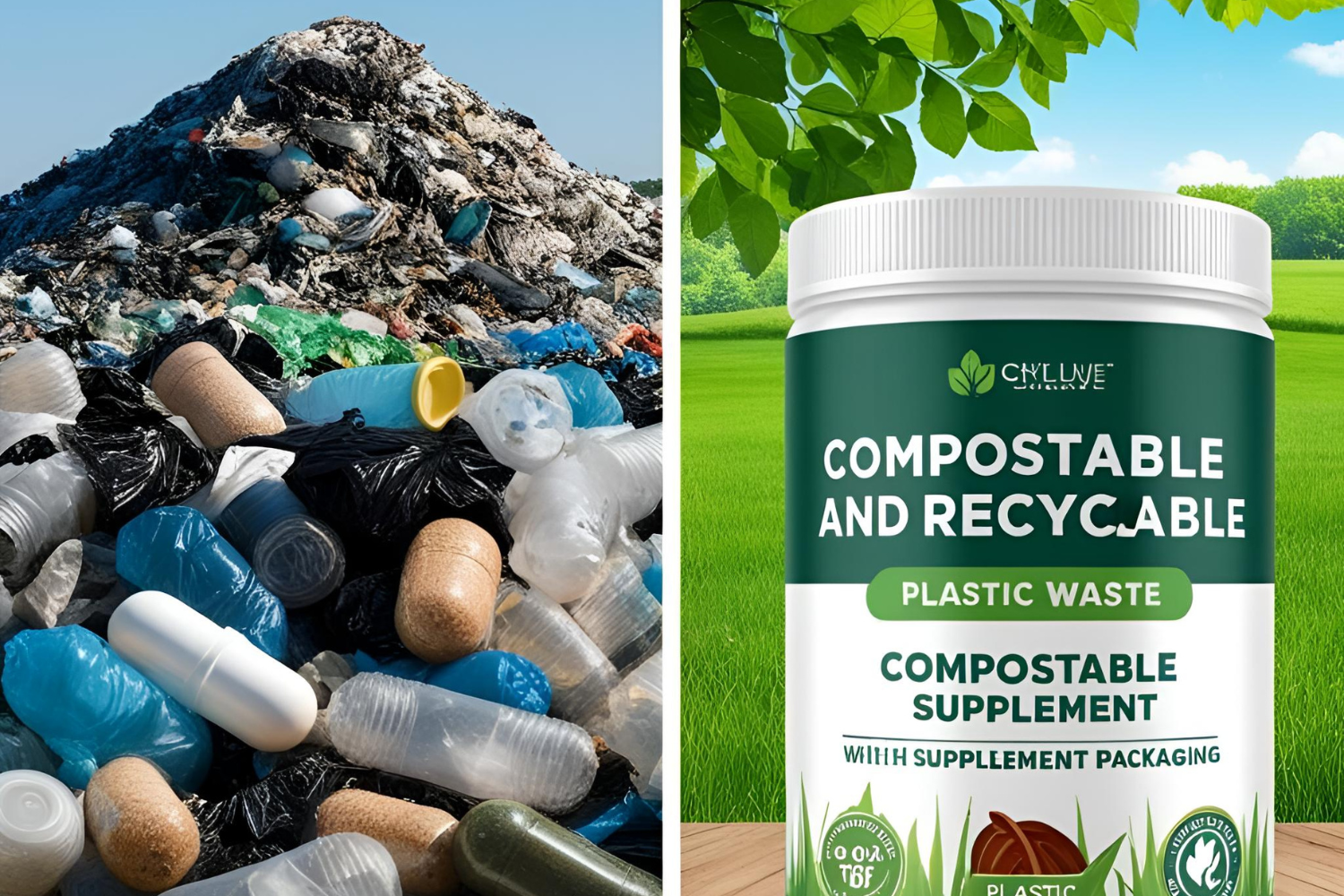
Key Features of Sustainable Supplement Packaging
Eco-friendly supplement packaging offers practical solutions that reduce waste, improve production efficiency, and maintain product integrity. Brands can choose from various sustainable materials and designs to meet industry standards and consumer expectations.
Biodegradable and Compostable Materials
Compostable packaging breaks down under the right conditions, such as industrial composting facilities, helping reduce reliance on traditional plastics. Unlike traditional plastics, biodegradable materials can break down under the right conditions, offering an alternative to traditional plastics for dietary supplements and other health products. Companies using compostable pouches and plant-based blister packs provide an eco-friendly alternative without compromising product safety. These materials support ethical nutrition by reducing reliance on fossil fuel-based plastics while keeping products fresh.
Recyclable Packaging
Recyclable packaging helps reduce plastic waste by ensuring materials can be repurposed rather than discarded. Glass jars, aluminum containers, and cardboard boxes are widely accepted in recycling programs, making them convenient for consumers and businesses. Flexible packaging made from recyclable films also provides lightweight, durable options that lower transportation costs and carbon emissions. Choosing fully recyclable supplement packaging benefits both the environment and a brand’s sustainability goals.
Minimalist and Reduced Packaging
Minimizing packaging helps reduce unnecessary materials, reducing production costs and environmental impact. Companies can design supplement packaging with fewer layers, smaller labels, and lightweight materials without sacrificing product integrity.
Eco-friendly pouches, simple recyclable boxes, and compact reusable bottles help reduce plastic waste and packaging-related emissions while maintaining convenience for consumers.
Renewable and Plant-Based Materials
Plant-based packaging offers a sustainable alternative to traditional plastics, using renewable resources that break down naturally. These materials lower the carbon footprint of supplement packaging while maintaining durability and quality.
- Bamboo – Lightweight, durable, and biodegradable, suitable for supplement containers and labels.
- Sugarcane – A renewable resource used in flexible packaging, bottles, and eco-friendly pouches.
- Cornstarch – Commonly used in compostable packaging and biodegradable films.
- Recycled paper and cardboard – Fully recyclable and suitable for supplement boxes and labels.
BPA-Free and Non-Toxic Materials
BPA-free packaging reduces exposure to bisphenol A, a chemical of concern, but brands should verify overall material safety. Many traditional plastics contain BPA and other toxic substances linked to health concerns.
Switching to food-safe packaging, such as glass jars, plant-based plastics, or aluminum containers, reduces exposure to certain chemicals found in traditional plastics. Brands that prioritize BPA-free materials also align with the growing demand for ethical nutrition and safer packaging options.
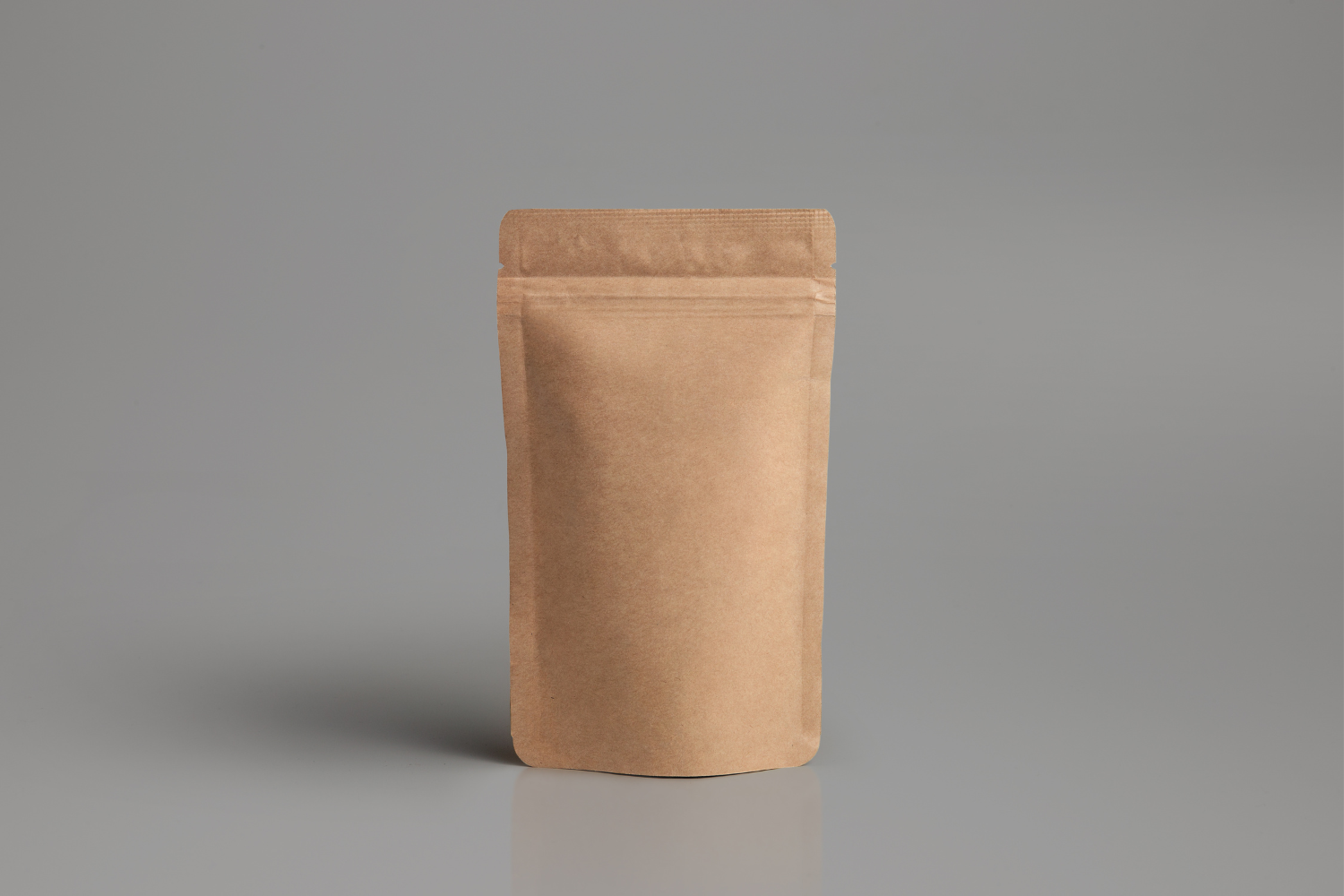
Types of Sustainable Supplement Packaging
Choosing the right packaging depends on sustainability goals, product type, and consumer preferences. Various eco-friendly packaging options provide durability, recyclability, and protection for supplements.
Recyclable Plastic Bottles
Bottles made from PET or HDPE plastics are widely accepted in recycling programs, making them a practical choice for brands seeking sustainable packaging solutions. These materials offer durability while reducing plastic waste when properly recycled.
Ideal for capsules, tablets, and powders, recyclable plastic bottles maintain product integrity and extend shelf life. Their lightweight design lowers transportation costs and carbon emissions, making them a cost-effective option for supplement brands.
Glass Bottles and Jars
Glass is widely recyclable and reusable, making it a sustainable option in regions with proper recycling facilities. It also offers a premium look that appeals to eco-conscious consumers. It provides excellent protection against moisture and air, preserving product quality without plastic waste.
Liquid supplements, tinctures, and high-end dietary supplements benefit from glass packaging due to its non-toxic, BPA-free composition. While heavier than other materials, glass supports ethical nutrition and sustainability efforts.
Compostable Pouches
Made from plant-based materials like cornstarch and kraft paper, Compostable packaging breaks down under specific conditions, such as industrial composting, reducing reliance on traditional plastics. These eco-friendly pouches provide a flexible packaging option that supports sustainable production.
Powdered supplements and single-use packets can be packaged in compostable pouches, though brands should ensure barrier protection meets product requirements. These pouches help brands reduce reliance on traditional plastics.
Aluminum Containers
Lightweight, durable, and infinitely recyclable, aluminum packaging provides strong barrier protection and is widely recyclable, offering an alternative to certain plastic packaging types. It keeps products fresh by blocking moisture, air, and light exposure.
Capsules, powders, and drink mixes benefit from aluminum containers because they preserve product integrity. Their sleek, reusable design enhances brand appeal in sustainable packaging.
Paper-Based Packaging
Cardboard tubes, cartons, and paper pouches provide a fully recyclable and biodegradable packaging option. These materials support sustainability without compromising on branding opportunities.
Eco-conscious supplement brands favor paper-based packaging for minimalist designs and lightweight convenience. It is suitable for various products and helps reduce plastic pollution while maintaining packaging durability.
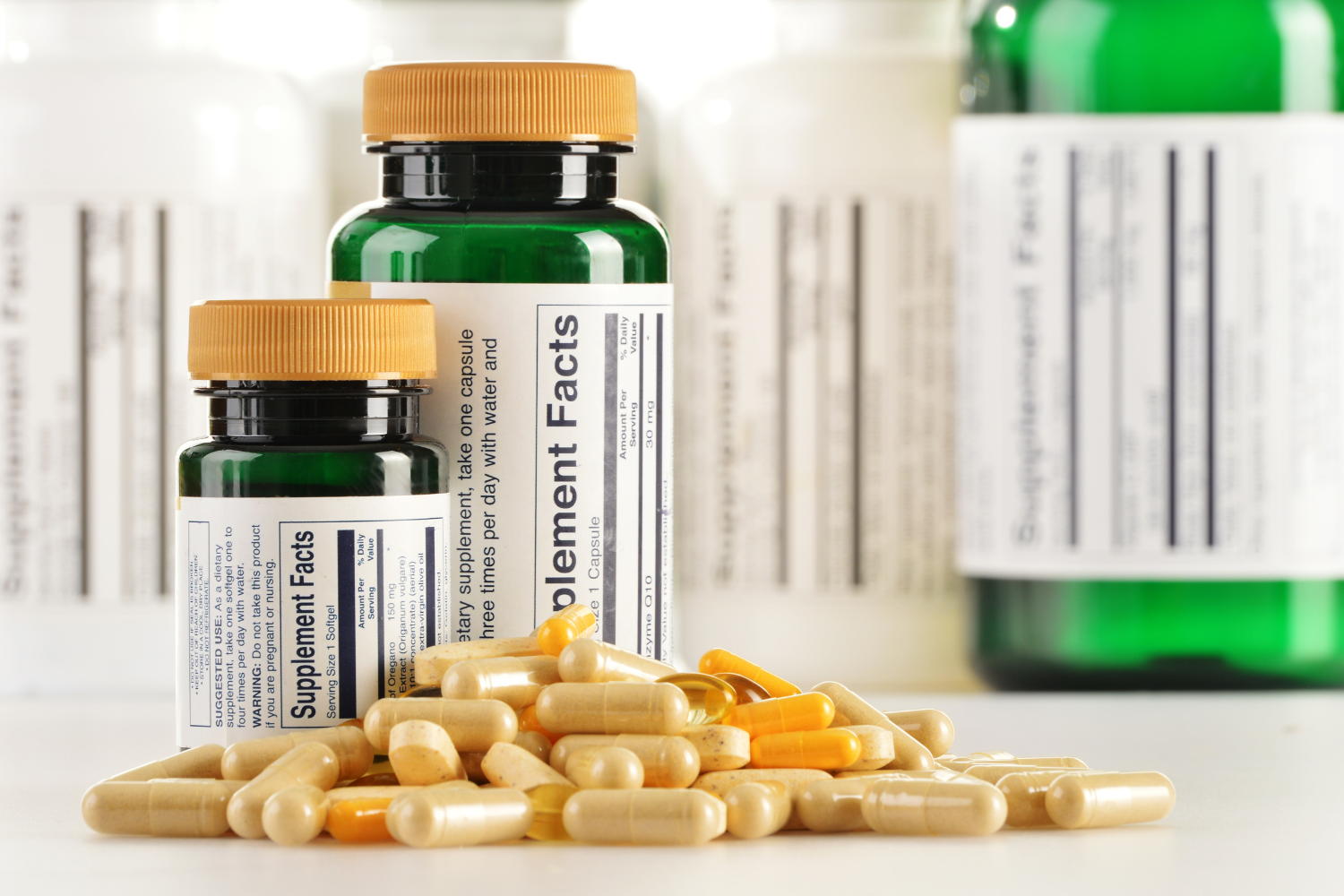
How to Choose the Best Sustainable Packaging for Your Supplement Brand
Selecting the right packaging involves balancing sustainability, product protection, and cost. Understanding key factors helps businesses make informed choices that align with brand values and industry requirements.
Product Compatibility
Packaging must protect supplements from moisture, light, and air to maintain product safety and quality. Glass jars, aluminum containers, and fully recyclable plastic bottles offer strong barriers, while eco-friendly pouches work well for dry supplements. Choosing the right material ensures supplements remain effective throughout their shelf life.
Customer Preferences
Consumers increasingly prefer eco-friendly packaging that is recyclable, reusable, or compostable. Brands that align with these values build customer loyalty and stand out in the competitive supplement market. Offering plastic-free supplements in glass jars, aluminum bottles, or biodegradable pouches appeals to sustainability-conscious buyers.
Regulatory Compliance
Sustainable packaging must meet FDA and industry safety standards to ensure product integrity. Materials should be food-safe, BPA-free, and suitable for dietary supplements. Certifications for compostable packaging and fully recyclable materials help brands demonstrate compliance and gain consumer trust.
Cost and Availability
Sustainability should be balanced with affordability and scalability. While glass and aluminum offer premium packaging, recyclable plastics and paper-based options provide cost-effective solutions. Sourcing materials that support production efficiency without compromising sustainability ensures long-term business success.
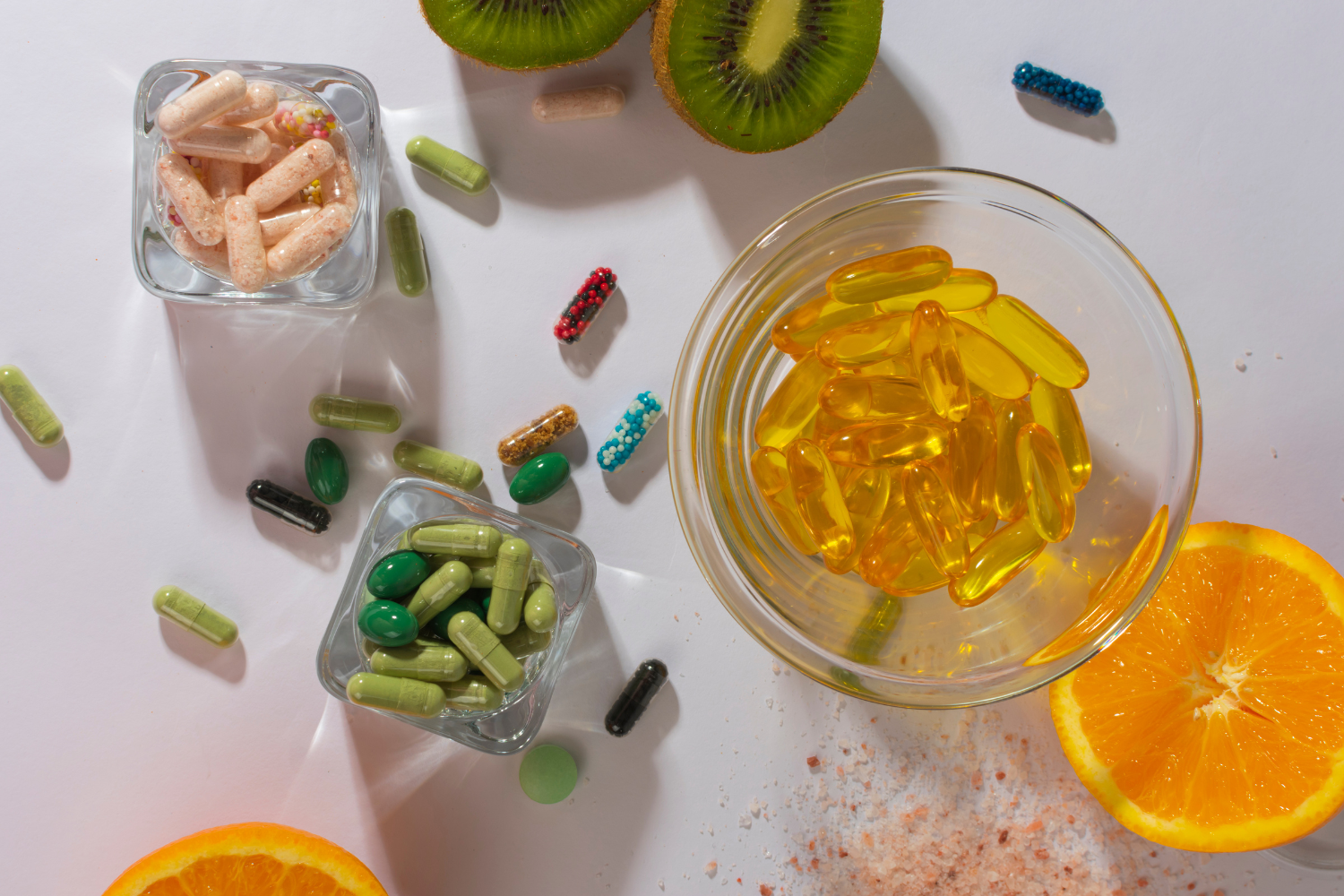
Branding and Marketing Benefits of Sustainable Packaging
Sustainable packaging strengthens brand identity by showing a commitment to environmental responsibility. Consumers are more likely to support companies that prioritize ethical nutrition and reduce plastic waste. Eco-friendly packaging can be a key selling point, helping brands stand out in a competitive market. Certifications like FSC (Forest Stewardship Council) and USDA BioPreferred provide credibility, assuring customers that the materials used meet sustainability standards.
- Enhancing brand identity with eco-conscious packaging – Using recyclable, compostable, or plastic-free packaging reinforces a brand’s values and attracts environmentally conscious consumers.
- How sustainability can be a key selling point – Highlighting eco-friendly packaging in marketing efforts can increase customer engagement and drive sales.
- Using certifications to build trust – Labels from recognized organizations confirm that packaging meets sustainability requirements, improving consumer confidence.
Common Mistakes to Avoid
Sustainable packaging must be both functional and environmentally responsible. Some brands make mistakes that reduce the effectiveness of their efforts, leading to higher costs or unintended environmental harm. Choosing the right materials and educating customers on proper disposal ensures long-term success.
- Choosing packaging that’s not truly sustainable (greenwashing) – Some materials may be marketed as eco-friendly but still contribute to plastic pollution. Verifying sustainability claims prevents misleading consumers.
- Overcomplicating packaging, making recycling difficult – Multi-layered packaging or mixed materials can be hard to separate, limiting recyclability.
- Ignoring durability and product protection – Packaging should maintain product integrity, preventing contamination or damage. Weak materials can lead to waste and dissatisfied customers.
- Failing to educate customers on proper disposal methods – Even sustainable materials can end up in landfills if consumers don’t know how to recycle or compost them properly. Clear labels and disposal instructions improve sustainability efforts.
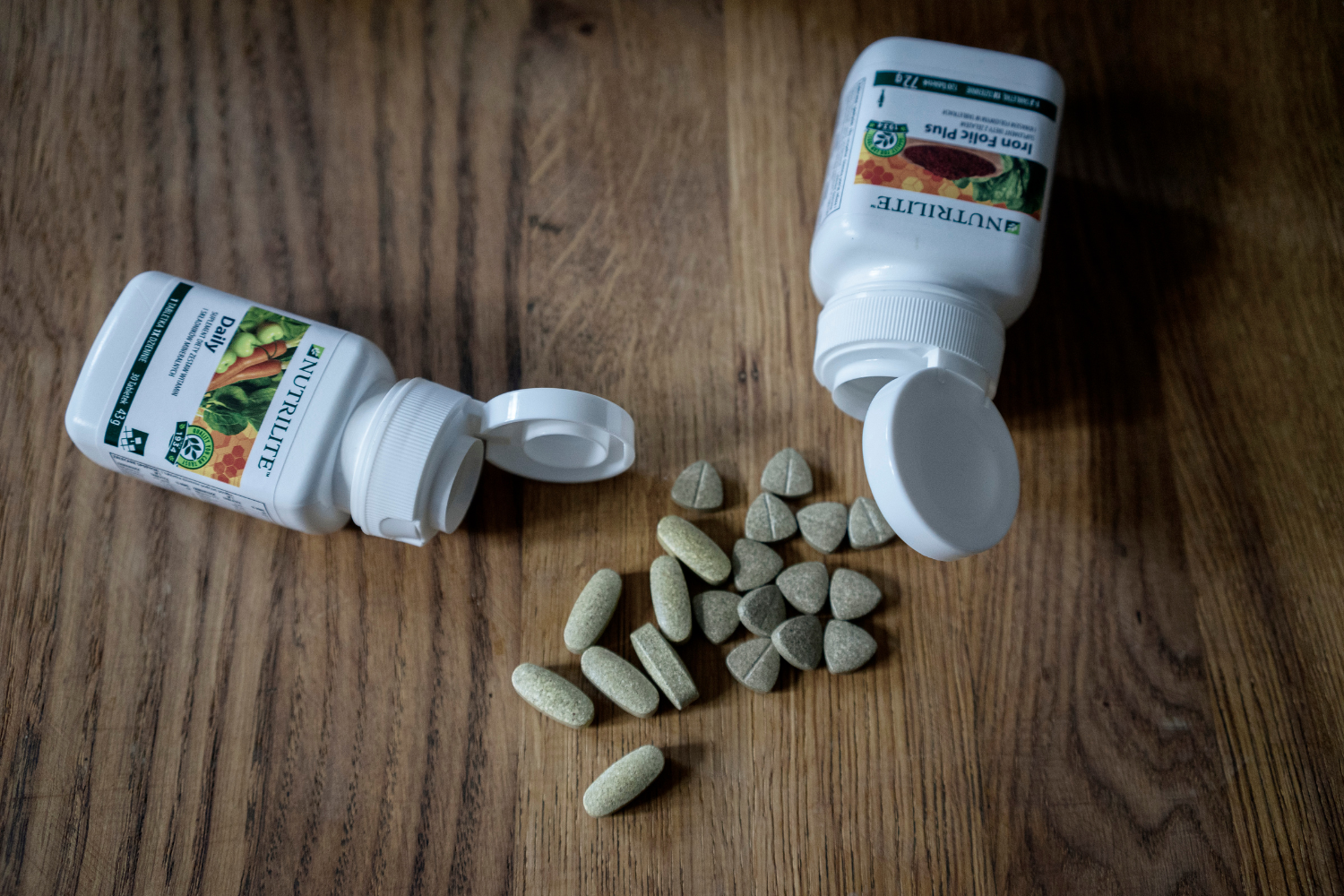
Where to Source Eco-Friendly Packaging
Finding reliable suppliers ensures quality and consistency in sustainable supplement packaging. Comparing costs and testing materials before large-scale production helps businesses choose the best option for their needs.
Recommended Sustainable Packaging Suppliers
Many suppliers specialize in eco-friendly packaging for dietary supplements, offering recyclable, compostable, and reusable options. Researching providers that align with sustainability goals ensures quality materials and ethical sourcing.
Comparing Costs Between Different Eco-Friendly Options
Sustainable packaging costs vary depending on materials, production efficiency, and order volume. Glass jars and aluminum containers may have higher upfront costs, while recyclable plastics and paper-based options provide budget-friendly alternatives. Weighing long-term benefits against initial investment helps brands make informed decisions.
Importance of Testing Packaging for Quality and Effectiveness
Before launching a product, testing packaging for durability, barrier protection, and sustainability claims is essential. Ensuring that eco-friendly pouches, bottles, or containers maintain product safety and freshness prevents issues with compliance and customer satisfaction.
Sustainable Supplement Packaging: The Future of Eco-Friendly Brands
Sustainable supplement packaging offers a practical way for brands to reduce plastic waste, meet consumer demand, and enhance product integrity. Transitioning to eco-friendly materials like compostable pouches, glass jars, and recyclable containers helps businesses align with industry trends while maintaining quality and compliance.
Finding reliable suppliers, comparing material costs, and testing packaging for durability are essential steps toward a more sustainable supply chain. Implementing these strategies ensures long-term environmental and business benefits.
Frequently Asked Questions
What is the most sustainable packaging for supplements?
The most sustainable options include compostable pouches, glass jars, aluminum containers, and fully recyclable plastic bottles designed to minimize environmental impact.
How can supplement brands reduce plastic waste in packaging?
Brands can switch to biodegradable materials, use eco-friendly pouches, and choose recyclable or reusable packaging to lower plastic pollution.
Are compostable supplement pouches durable?
Yes, high-quality compostable pouches made from plant-based materials protect supplements from moisture and air while breaking down naturally over time.
What certifications should eco-friendly supplement packaging have?
Look for certifications like FSC (Forest Stewardship Council), USDA BioPreferred, and compostability standards to ensure packaging meets sustainability requirements.
How can businesses transition to sustainable supplement packaging?
Start by researching suppliers, testing different eco-friendly materials, and gradually integrating sustainable packaging into product lines to maintain quality and cost efficiency.
References
- U.S. Environmental Protection Agency (EPA). (2024). How Do I Recycle Common Recyclables. https://www.epa.gov/recycle/how-do-i-recycle-common-recyclables
- U.S. Environmental Protection Agency (EPA). (2025). National Recycling Strategy. https://www.epa.gov/circulareconomy/national-recycling-strategy
- U.S. Environmental Protection Agency (EPA). (2024). Plastics: Material-Specific Data. https://www.epa.gov/facts-and-figures-about-materials-waste-and-recycling/plastics-material-specific-data
- U.S. Food & Drug Administration (FDA). (2023). Bisphenol A (BPA): Use in Food Contact Application. https://www.fda.gov/food/food-packaging-other-substances-come-contact-food-information-consumers/bisphenol-bpa-use-food-contact-application
- U.S. Food & Drug Administration (FDA). (2024). Packaging & Food Contact Substances (FCS). https://www.fda.gov/food/food-ingredients-packaging/packaging-food-contact-substances-fcs

